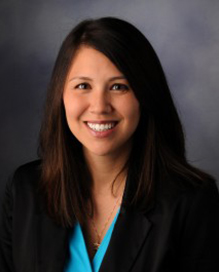

June 17, 2019 | By Rachel Tay, MD, FACS
Has your doctor recommended a colonoscopy for you? If this is your first one, you probably have a few questions. Maybe we can help.
There are several reasons why a physician would recommend a colonoscopy. Perhaps you’ve reached the magic age when someone should start to have routine colonoscopy screenings. Perhaps you’ve noticed symptoms that might indicate a problem in your intestinal tract, such as inflammatory bowel disease, Crohn’s disease or ulcerative colitis. Maybe you have close family members with a history of colorectal polyps or cancer. Or you may have a genetic condition that increases your chance of colon cancer. Whatever the reason, if your doctor has recommended a colonoscopy, it’s a good idea to have one.
Yes, although any invasive procedure carries a small risk of infection, bleeding and tears in the bowel. Your doctor will take precautions to minimize these risks.
Maybe. That’s a question for your doctor. It depends on your age, your medical history and your symptoms.
This is a colonoscopy performed with CT imaging and X-rays, instead of a lighted tube that is inserted into your rectum. The prep is the same as for a typical colonoscopy, but the doctor isn’t able to remove any polyps he or she may find.
Colonoscopies are done under sedation and most people do not remember the procedure at all. It is possible mild discomfort may occur, but if you do feel any during the procedure, tell your doctor, and he or she will give you additional medication. Some people notice gas discomfort for a few hours afterwards, but that usually goes away quickly and is relieved by walking.
Typically, a colonoscopy takes 30 minutes to an hour, depending on what your doctor finds.
It depends on what he or she finds. If you have small polyps, the doctor may be able to remove them during the colonoscopy. If they are too large to remove endoscopically, the doctor may biopsy them to obtain a diagnosis. Other disorders may need further treatment or even surgery.
Well, we won’t lie. It’s not the most fun thing in life, but the prep is really important. Your colon should be completely clear to give us the best view of the tissue. Fortunately, the liquids you need to drink ahead of the procedure have improved tremendously in the past few years. Your doctor will give you a complete list of instructions for you to follow.
The newest guidelines from the American Cancer Society recommend that all adults at average risk of colon cancer should start routine screening at 45 years of age. This may include either fecal testing or colonoscopy. If no polyps are found, you should have another in 10 years. If your doctor finds cancer, polyps or other disorders, you may be asked to have them more frequently.
Colonoscopies can save lives. If you have other questions about this important procedure, please give us a call at 763-780-6699.